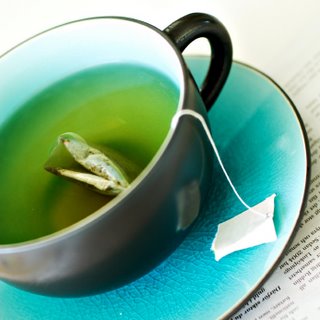
Eat right to sleep tight
By Ellen Kamhi PhD, RN, AHN-BC, AHG and Lynn Allison
Can’t sleep through the night? If you find yourself tossing and turning instead of sleeping soundly, you are not alone. Experts say that at least once in our lives, most of us will suffer from severe insomnia. But before you reach for the over-the-counter sleeping aids, try an all-natural approach to catch those Zs.
“Chronic insomnia—defined as difficulty initiating or maintaining sleep three times or more per week for a period of one to three months—affects about 10 to 15 percent of all adult Americans. This number increases with age: studies of people over 65 have shown that as many as 40 to 50 percent of senior citizens suffer from chronic insomnia.”
To combat this, there are many proven lifestyle strategies to cope with insomnia, from increasing your daily exercise to making your bedroom a sanctuary for sleep. According to a news release from Northwestern University Sleep Foundation, people suffering from chronic insomnia who exercised aerobically four times per week—for only 20 minutes each session—reported better sleep quality, fewer symptoms of depression, more energy, and less sleepiness during the day.
But what you eat can also be a powerful medicine to fight insomnia. Eating certain types of food during the day and especially at dinner, can ensure a sound night’s sleep, says Dr. Aaron Tabor, of Kernersville, North Carolina, who is an expert on how the body metabolizes nutrients.

how to get a good night's sleep
“The amino acid, tryptophan, is nature’s natural sedative,” he says. “By eating a light dinner of foods rich in tryptophan along with a small amount of carbohydrate, you allow the body to release serotonin, a brain transmitter that makes you calm and sleepy.”
Dr. Michael Breus, a clinical psychologist with a specialty in sleep disorders and author of Beauty Sleep: Look Younger, Lose Weight and Feel Great Through Better Sleep (Plume 2010), adds that your bedtime snack should be eaten about 90 minutes before lights out.
“Your body doesn’t digest foods lying down well, so even if you nod off, you may find you have gastrointestinal upset that will wake you up,” says Breus. Tryptophan is more of a sleep regulator than sleep inducer, so the best way to help your body’s sleep schedule is to plan your daily meals to accommodate how your body digests fatty foods, carbohydrates, proteins and fluids—all of which pass through the body at different rates.
Tryptophan is an essential amino acid. It’s called essential because the body cannot manufacture it, so we have to get it from the foods we consume. Tryptophan is converted in the liver into vitamin B3 or niacin, which is important for all neurologic functions, including mood balance, relaxation, and sleep. In order to support maximum tryptophan absorption, its best to consume tryptophan-containing foods on an empty stomach along with a small amount of healthy carbohydrates.
When you eat carbohydrates along with a protein food that is high in tryptophan, the carbohydrates initiate the release of insulin by the body. Insulin tends to clear most amino acids, but tryptophan is not affected by insulin. Therefore, more tryptophan is able to reach the brain since it is not competing with other amino acids to cross the blood-brain barrier. This can then significantly increase serotonin, which in turn helps the pineal gland to manufacture melatonin. This is essential for healthy sleep.
Research also shows that getting enough sleep—about eight hours for most folks—can help you lose weight three times faster than simply lying awake in bed.
“People who get enough sleep are less likely to crave sweets and highcarbohydrate snacks to keep them awake,” explains Breus. He points out that getting a good night’s rest ensures the hormones leptin and ghrelin work efficiently to regulate your appetite and hunger. Ghrelin triggers your impulse to eat, while leptin sends a signal to the brain that you are full.

what to eat before falling asleep
“When you don’t get enough sleep, the leptin levels decrease and you don’t feel satisfied when you eat,” says Breus, who is also a faculty member of the Atlanta School of Sleep Medicine.
Of course, practicing good sleep habits can also help you catch your Zs. Going to bed the same time every day, avoiding conflict, caffeine, and alcohol in the evening, and even using aromatherapy or a sound machine can all help you fall asleep faster.
Making breakfast your biggest meal of the day, while avoiding high-sugar cereals or high-fat concoctions, will help you start the day on the right foot. You can determine the sugar and fat content of breakfast cereals by reading the Nutrition Label and Ingredients. Sometimes, this can be surprising.
Even some organic cereals have “organic cane sugar” as the second ingredient on the label. Since the ingredients are listed in descending order, the second ingredient indicates a relatively high amount. On the other hand, an old-fashioned cereal such as Uncle Sam Toasted Whole Wheat Berry Flakes & Flaxseed Original Cereal is not certified organic, but is much lower in sugar and higher in whole grains and protein—a much better choice. Uncle Sam’s would also work well for a sleep-supporting evening snack. If you are choosing an oatmeal, stick with the plain, unflavored variety. Even if it is organic, flavored oatmeal will usually contain sugar and other ingredients you just don’t need.
Lunch can be a sandwich or a salad with protein to help you get through the afternoon. Dinner should have protein as well as complex carbohydrates and needs to be eaten four hours before bedtime. If breakfast is not your largest meal, you can use lunch as your main meal for the day, and use the evening meal as a light snack. Miso soup and whole grain, wheat-free bread or organic rice cakes are a good choice. Lundberg Wild Rice Cakes with organic almond or peanut butter is the perfect high tryptophan sleep supportive snack to eat at night, accompanied by Sleepytime Tea. This gives you time to metabolize your food. The best bedtime snack is one that contains complex carbohydrates, protein, and calcium. Calcium helps the brain use the tryptophan to manufacture melatonin.
Dairy foods, that contain both tryptophan and calcium, are one of the top sleep friendly foods, says Breus. And by combining carbohydrates together with a small amount of protein, your brain makes serotonin, known as the calming hormone.
Food Allergy Connection
Research is continuing to uncover a myriad of suspicious symptoms that are being linked to individual food sensitivities and allergies, including mood imbalances and insomnia. Common allergens that might be the culprit include wheat and dairy products. Try giving them up for six days and monitor your response. Although dairy can be a useful relaxant for most individuals, it may have the opposite effect for someone who is lactose intolerant or dairy sensitive.
Limit Caffeine

eliminate caffeine before bedtime so that you can sleep soundly
Caffeine is a stimulant alkaloid molecule that naturally occurs in many plants that are used for food and beverages. These include coffee, tea (yes, even green tea), and chocolate. Many pharmaceutical drugs and soft drinks are also high in caffeine, as well as popular ‘energy shot drinks.’ Consumer Labs (consumerlabs.com) evaluated 5 Hour Energy, a popular energy shot drink, and found:
“5-Hour Energy…notes that the amount of caffeine is comparable to that in a cup of ‘leading premium coffee.’ ConsumerLab.com found the 2-fluid-ounce bottle to contain 207 mg of caffeine. However, this is 15 percent higher than what you would get from a ‘short’ cup (8 fluid ounces) of a premium coffee such as Starbucks, which Starbucks claims to have 180 mg of caffeine.”
Since the effects of caffeine can last up to 20 hours, having an innocent cup of coffee or energy shot drink, even early in the day, can seriously interfere with sleep, especially for a caffeine sensitive individual. Choose organic decaf coffee or herbal tea instead.
Ellen Kamhi PhD, RN, AHN-BC, AHG, The Natural Nurse®, is a medical school instructor, author and radio/TV host. She has been actively involved in natural medicine since 1964.

Soothing Chime Alarm Clocks with Acoustic Sounds
Lynn Allison is an author, 30 year veteran reporter in the health and fitness field and writes weekly for several national publications.
Now & Zen’s Alarm Clock Shop
1638 Pearl St.
Boulder, CO 80302
(800) 779-6383
Posted in sleep, Sleep Habits